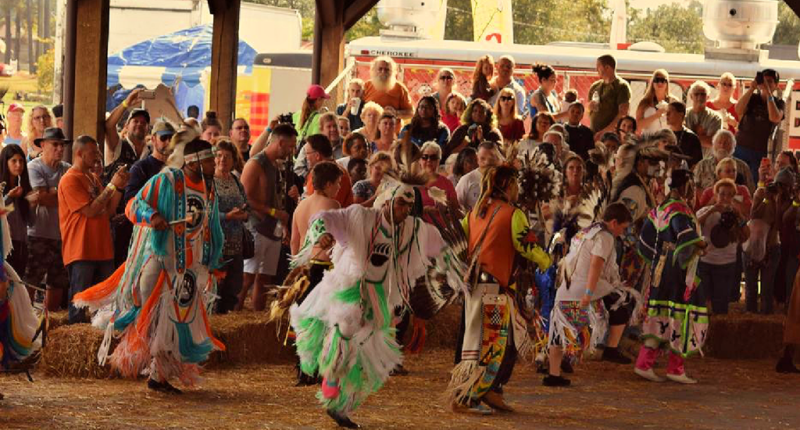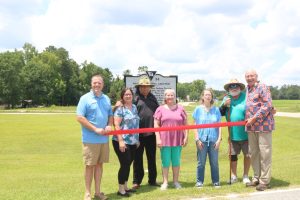
The Waccamaw Indian People of SC face many challenges: the “pencil and paper erasure” of their people; tainted drinking water; and repetitive flooding in marginalized communities across Horry County. Headquartered in Aynor since 1992 and recognized by the state of South Carolina since 2005, the tribe’s mission is to reclaim their history, culture, and land. They educate about their heritage, collaborate with Coastal Carolina University, raise awareness about PFAS contamination in the soil and water, and advocate for oversight and accountability. Promoting an indigenous perspective on living in harmony with nature, they help communities address flooding and land loss. They work with predominantly low-income residents in flood-prone areas to choose nature-based resilience methods, specifically planting rain gardens with native, culturally significant species to minimize flooding, filter pollutants, and beautify the landscape. In 2025, they opened the Waccamaw Native Heritage Interpretive Trail, an outdoor learning space that educates the public about 10,000 years of Waccamaw presence and stewardship.

The Waccamaw Indian People’s ribbon-cutting ceremony in June of 2025 celebrated the placement of a historical marker at the entrance of the tribal grounds, located at 591 Bluewater Rd., Aynor, SC. Source: The Waccamaw Indian People’s Facebook
Today, the tribe is led by a nine-member Tribal Council, united in their commitment to environmental health and cultural preservation. Partnering with the South Carolina Environmental Law Project, Acting Chief Cheryl Cail helped lead a formal petition urging the state to tighten regulations on PFAS and lead in rural drinking water. This advocacy, alongside partnerships with Duke University and the Waccamaw Siouan STEM Studio, brought PFAS testing kits and protective tools directly to tribal households. The tribe’s interpretive trail, supported by South Carolina Humanities, transformed their Aynor homelands into a site for community education and healing, and their long-running collaboration with Coastal Carolina University has led to exhibits, student engagement, and outdoor learning initiatives. Through policy leadership, public programming, and direct service, the Waccamaw Indian People are equipping their communities with the knowledge and tools to reclaim history – and to shape a more resilient future.